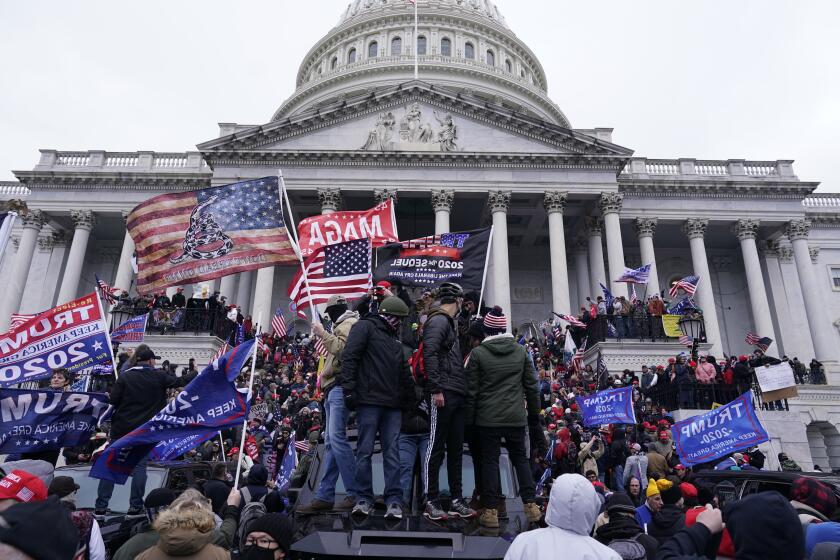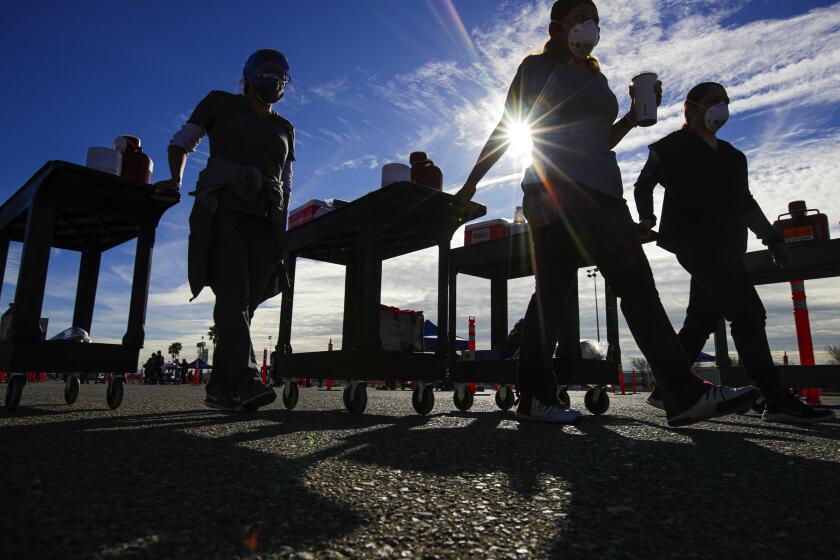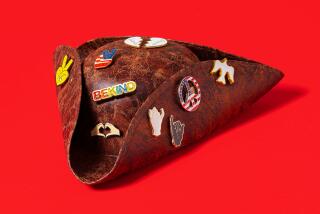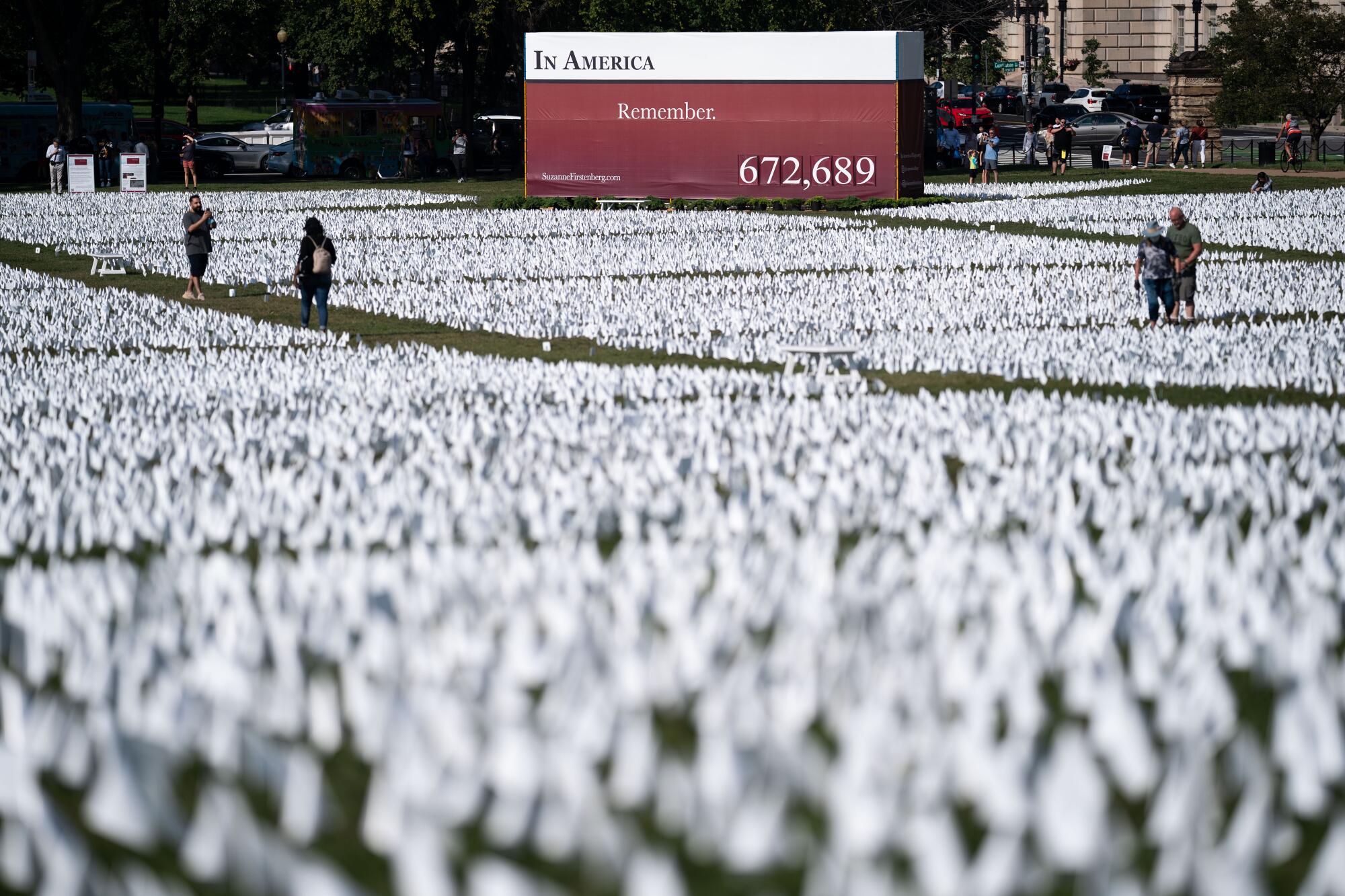
- Share via
Frank was everything I was not. White. Middle-aged. A father. Rich. Republican.
We somehow still hit it off years ago. He was a faithful reader of mine who agreed more often than not with my stories. I enjoyed his insights and wit.
I did something I rarely do with people I know only through the internet: I offered to meet in real life.
I treated Frank to lunch a couple of times; he bought my books. We learned about each other’s families enough that we filled each other in on their developments and genuinely cared. My interactions with him, whether via private email or publicly on social media, were something I looked forward to and were almost daily.
We became ... if not full friends, then definitely friendly. Both of us reveled in the idea that we were a political Odd Couple in an era that doesn’t look kindly on them. In fact, I sometimes defended Frank from people angry at his views and angry at me for even associating with someone like him — and he’d do the same.
I bragged to the unbelieving wokesters in my life that I had more than a few friendships with people like Frank. We maintained our ties because we had a deeper reason to talk, and years of doing so with few incidents other than vibrant — but never toxic — debates.
From the Capitol riot to vaccines and climate change, a look at what dominated the news and conversation in 2021 as the world began to move past the pandemic.
2021 destroyed all that.
Frank believed the coronavirus was real, but thought the reaction to it, medical and governmental, was overblown. I thought he was being too flippant and told him to get with the science. Our conversations on Twitter became more and more strained until I no longer looked forward to them.
Then one day, I decided to mute him. I became the very person I always slammed.
One irony: We had kept our back-and-forth throughout the Trump era, when many of my friends proclaimed they no longer wanted to talk to anyone who supported the then-president. I felt such sentiments childish and performative and transactional and just so American. If your relationships with others are so shallow that one disagreement gets between the two of you, I harrumphed multiple times on Facebook, then we truly are doomed as a country.
But who could have anticipated 2021?
The triple-whammy of COVID-19, a vaccine to fight it, and the continued fallout from the Jan. 6 storming of the U.S. Capitol has frayed more friendships or outright destroyed them more than anything I’ve ever seen. Instead of trying to tolerate our differences or just agree to disagree with people we know, more of us just drop them altogether and dive deeper into our respective bubbles.
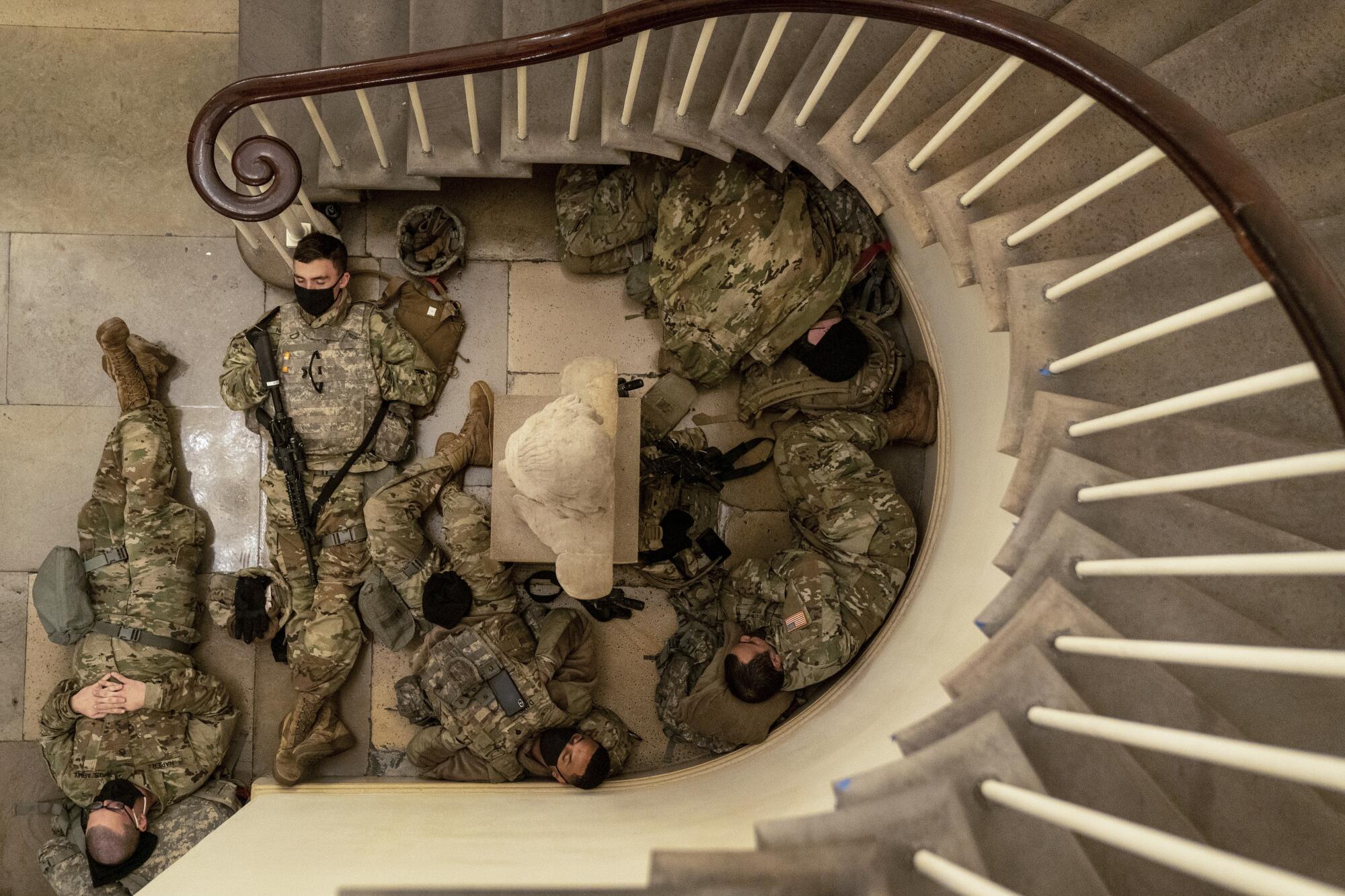
This phenomenon is more ruinous to us as a society than any policy the Trump administration hurled at us. We cannot grow as individuals without loyal opposition challenging us, or as a society without considering the merits of the other side.
We’re growing deaf due to the echo chamber that’s social media. It allowed us to connect with more people than ever before — but also cheapened the idea of those very connections by making them as easy to sever as an unfollow or a block.
It wasn’t supposed to be like this.
I still remember the rush of the early days of social media, when people I hadn’t heard from in years or those I didn’t know asked if they could “friend” me. The idea of keeping up with others and vice versa by just logging on was liberating, empowering. We didn’t need long conversations to show others we cared; all we needed to do was click “like,” maybe leave a pithy comment, and that was it.
We were friends. We were nothing.
When you talk to people regularly and in person, you can at least track the evolution of someone, and check them if they start to espouse nonsense. People change, after all. But the danger of social media is how it doesn’t just lead people down rabbit holes; it jackhammers them deeper and deeper.
In the months since the deadly attack, election denialism has grown, paving the way for future efforts to violently overturn elections.
President Trump poured gas onto this truism; 2021 lit the fuse. It took Frank to make me realize this.
Soon after I muted him, I reviewed my Facebook account, which I now consider a platform to keep up with the life events of others (as opposed to Instagram, which is all about photos of food and pets, or Twitter, which is just one giant GIF war for me). I saw people whom I had become friends with over a decade ago post conspiracy theories about COVID-19, or rail against liberals and the media. I unfriended them, then wondered why I had never interacted with them all these years later — weren’t we friends, after all?
I then looked up people who I knew were friends of mine at one point in real life — like, say, high school — and whom I had kept in touch with over the years. Without me noticing, some had unfriended me. Their silent move upset me, but also put into focus the superficial ties we had reestablished. If we had really wanted to rekindle our friendship, I figured, we would’ve exchanged something more meaningful, like text messages, or maybe shared dinner.
But sometimes, even a flicker of a connection can be more profound than real ones.
I also saw on my timeline posts by people who had taken over the accounts of others after their owners had died. Dozens of people who were my putative friends on Facebook but whom I didn’t recognize had passed away because of COVID-19. Their deaths saddened me, and not just because of the tragedy. It was a reminder of my own selfishness. At one point in their lives, they had made the effort to interact with me; I hadn’t seen enough value in that to reciprocate other than accepting their request.
Frank was different — until he wasn’t.
Late last year in the middle of a dark December — infections running rampant, hospitals pushed to the brink — 2021 held such promise.
The urge to befriend others, and trust they won’t hurt us, is arguably what makes us humans. We all want that, one way or another. 2021 tried that tendency, so let’s renew such grace next year.
I’ll start. Frank, wherever you are, I’m sorry I muted you. I’m sorry that I took weeks to respond to a nice email you sent me this year, and I don’t blame you for not responding when I finally wrote back. I’m sorry that I didn’t follow up on my promise to unmute you, but I just did.
I looked you up the other day — you still follow my Twitter page. Let’s talk again in 2022 — lunch on me.
More to Read
Sign up for Essential California
The most important California stories and recommendations in your inbox every morning.
You may occasionally receive promotional content from the Los Angeles Times.
